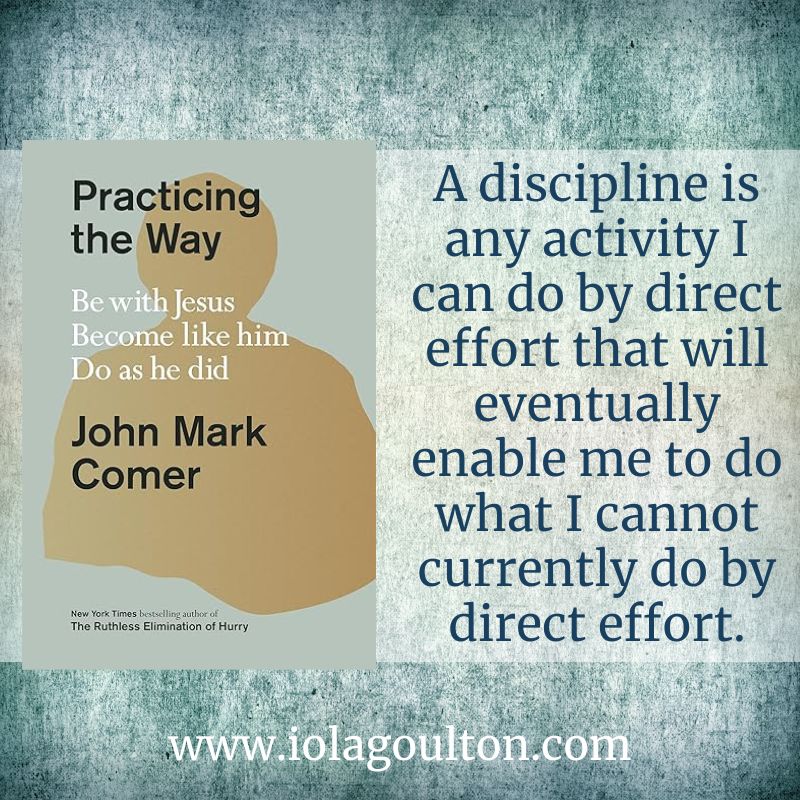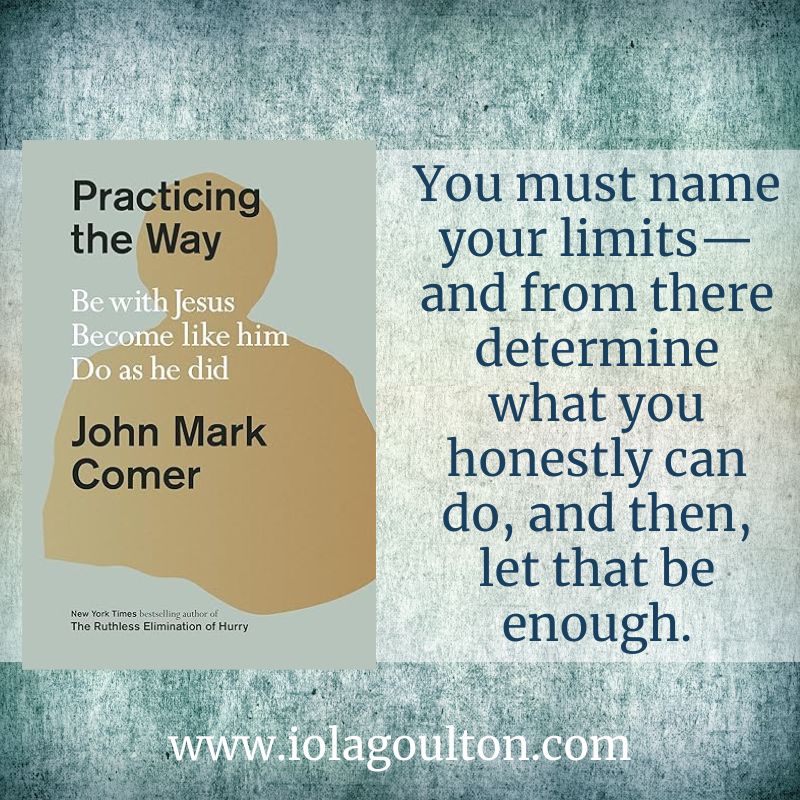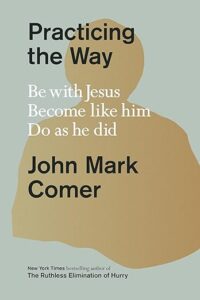John Mark Comer posits that Christianity should be more than praying a salvation prayer. It should also be a way of living. In Practicing the Way, Comer offers practical, Biblical suggestions as to how Christians can become true disciples—apprentices—of Jesus.
The book is structured in four parts.
In the first, Comer takes readers through the rabbinical tradition of disciples, pointing out that “disciple” is a noun, not a verb i.e. we are (or aren’t) disciples of Jesus. He also suggests that “apprentice” might be a better translation, because an apprentice is responsible for learning.
Comer argues that the accountability is on us listening to Jesus and learning, rather than putting the accountability on the teacher to teach (which turns “discipling” into adverb, an action that is performed on us).
He then moves onto three goals for disciples: to be with Jesus, to become like Jesus, and to do as He did.
But how? Here Comer builds on some of his suggestions and insights from his previous book, The Ruthless Elimination of Hurry, and suggests some oh-so-logical ideas that are oh-so-easy to resist: ideas like having a digital Sabbath once a week, and to have daily no-phone times.
Comer also emphasises that we can’t let our practices become our faith.
The point of spiritual practices is to bring us closer to God, not to turn our faith into a set of rules for the sake of rules (something I see as I grow older: one person has a personal rule they find helps them grow closer to God, such as not reading novels or not using their phones on Sunday, and others turn this into a Rule they say everyone must live by in order to be a “proper Christian”. This is a “Jesus plus” gospel, where outward appearance and action takes precedence over the heart attitudes … instead of outward actions reflecting our heart attitudes).
Discipline is a means to an end—to be with Jesus, become like him, and do what he did. But Comer is refreshingly realistic: he recognises that we all need limits.
Comer’s Christianity is the opposite of hustle culture and the more-more-more of modern life (and, often, of modern church). Instead, it’s less:
In other words, we have to learn how to say “no” to people if we’re going to have the capacity to say “yes” to God.
I got a lot out of reading Practicing the Way. It’s easy to read, yet jam-packed with Christian wisdom and solid ideas on how to turn the ideas into actions. I will no doubt need to re-read it in a few months … perhaps right after I re-read The Ruthless Elimination of Hurry.
Recommended.
Thanks to Waterbrook and NetGalley for providing a free ebook for review.




